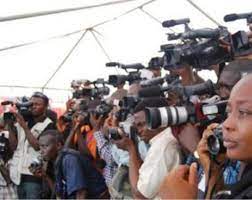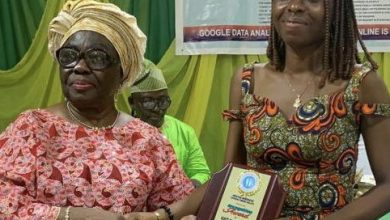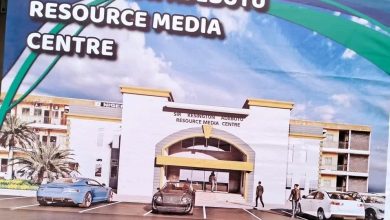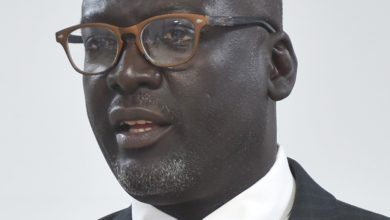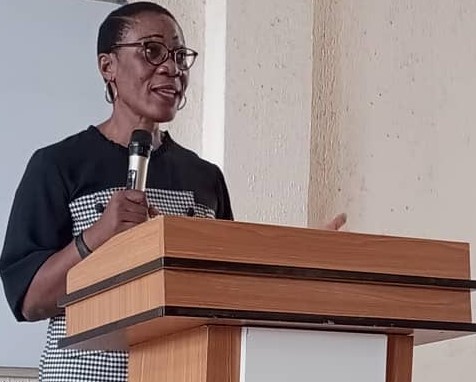
Online Publishers President cautions students to desist from spending frivolous hours on social media
The President of the Guild of Corporate Online Publishers (GOCOP) Maureen Chigbo has enjoined students, to shun spending excessive hours on social media, so as not to derail from their academic mission and purposes, as such may lead to poor academic performances
Penpushing reports that Chigbo, who is the Publisher of Realnews Magazine Online, gave the caution note while speaking on “Social Media in Medical Training and Profession”, at the symposium organised by Nigerian Medical Students Association, (NMSA), Preclinical Forum, North Central in collaboration with Bingham University Medical Students Association at the Architecture auditorium, Bingham University, Karu.
The number one online Publisher in the country noted that social media addiction can negatively affect academic performance, citing scholarly studies which showed that students who spend up to three hours on social media performed poorly.
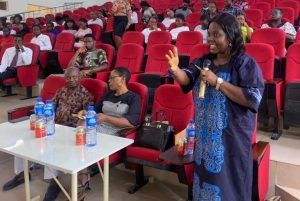
Penpushing further reports that, Chigbo while quoting a study done by Bhandakar Ajay et al in 2020 said 41.5 percent of students use social media for up to three hours per day, stressing that WhatsApp, 98.25 percent and YouTube, 91.75 percent were the most commonly used social media application by the students while 73.3 percent used social media to read health related news; 71.5 percent used it to complete assignments and more than 50 percent used it for seminar preparations.
The guest lecturer said, the study, however, showed that academic performance of female students was better than male students, adding that, there was a significantly higher use of social media among academically low performing medical students compared with high academic performing medical students.
‘Also, there was a weak negative correlation between academic performance and social media usage and a strong positive correlation between social media usage and social media addiction score. The study concluded that social media has a negative impact on academic performance of 21st century undergraduate students’, Chigbo said.
“As students, you can use social media to share ideas about your lectures, hold discussions and revisions on your class work as your examinations approach, and for other worthwhile engagements, and not just for gossips, sharing pictures, jokes and other irrelevant acts that will not augur well for your academics and career,” she advised.
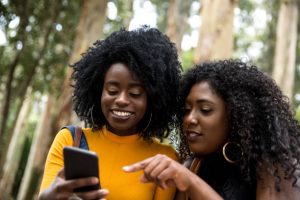
Penpushing also reports that, she noted that there are concerns about the use of social media in medical profession, and cautioned the students to be sensitive to ethical issues in their relationship with patients through the social media.
The Publisher emphaised that this is important because the matching of patients and physicians via social media entails some risks and may lead to speculation and misunderstanding, pointing out that ethical issues arises from the fact that social media, web and mobile technologies are increasingly used in healthcare and direct support-patient-centred care.
Penpushing reports that, she said that patients benefit from disease self-management tools, contact to others and close monitoring, stating that researchers study drug efficiency or recruit patients for clinical studies via these technologies, adding that low communication barriers in social media, limited privacy and security issues leads to problems from an ethical perspective, according to K. Denecke et al (2015).
The Online Publishers President cited a study by K. Denecke et al on medical students from Afyoin Kocatepe University, Faculty of Medicine, Afyonkaratusar, Turkey, which revealed that 93.4 percent of medical students used social media while 89.3 percent used it for professional purposes, explaining that, the study showed that attitude toward s social media were based five factors such as professional usefulness, popularity, ethics, barriers and innovative.
Penpushing further reports that, during the programme, there was a panel session which featured Kardi, former president of the Bingham University Medical Students Association, who is now a Medical Doctor, Emmanuel Idodoh, the Vice President, by Nigerian Medical Students Association, (NMSA) Internal, Collins Ijah, Nigerian Medical Students Association, (NMSA) fund raiser assistant and Tsavsar Manaseh, General Secretary of the Northern Caucus.
The panelist discussed issues about the medical school life, surviving the hustles and tussle of medical school and also shared their leadership experiences in Nigerian Medical Students Association, (NMSA) and beyond.
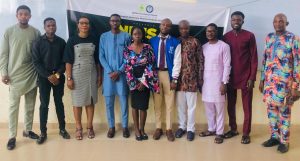
Penpushing also reports that, an Associate Prof. Danborno, who represented the Dean Faculty of basic medical sciences commended the organisers of the event and emphasized on the need for students to strike a balance between academics and extracurricular life and also take up opportunities as they come while delivering on every given task.
The organisers expressed appreciation to Webster, Emmanuel Idodoh, Choji, Collins Ijah, Enokela Ameh, Tsavsar Manaseh and the entire by Nigerian Medical Students Association, (NMSA),National Executive Council for their constant support, adding that they are determined to do more as a forum for the growth of the Preclinical students and Nigerian Medical Students Association, (NMSA) generations to come.
FOOTNOTE: You want to share story with us? You want to advertise with us? You need publicity for product, or service, or event? Contact us on WhatsApp +2348073463653 or email penpushing@yahoo.com



